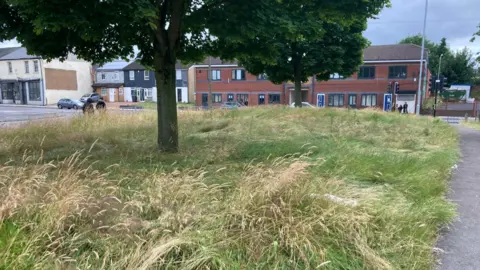Grass cutting reductions scrapped after criticisms
 LDRS
LDRSReducing the grass cutting schedule in a town is to be dropped from its council's draft budget after complaints about the borough looking messy, the authority said.
The proposal to reduce the schedules in Walsall, in the West Midlands, would have saved £50,000 in the 2025-26 budget.
The removal of the plan followed a backlash to last year's programme where officers, the public and councillors aired concerns that the borough looked unkept, leading to a lack of pride and increased anti-social behaviour.
But council leader Garry Perry said rewilding, to improve natural habitats, would still happen.
Although he said it would probably not be "in the same way as initially intended. It will be there in those most appropriate areas".
At a meeting on Wednesday, Perry said it was unfair for the criticism to be solely directed towards the portfolio holder for street pride, councillor Kerry Murphy, for the decision to cut grass less.
"It was a collective decision made by this cabinet which I was part of and the other deputy leader as well," he said.
"It's unfair to lay criticism with individuals when it was a collective decision to start with.
In 2024, green areas across the borough of a size equivalent to 50 football pitches were cut only once, following the government's new Environmental Improvement Plan to create at least 500,000 hectares (1.23m acres) of rich habitats for a range of wildlife.
While many elected members were critical about the state of the borough, when asked to fill out a form to provide feedback on the grass-cutting programme, 42 of 60 elected members did not bother, Perry said.
"Some of those with the loudest voices didn't even respond to councillors Murphy's call for information so these decisions could be made in the right way," he added.
In addition to improving habitats, the policy was created to improve residents' health and well-being, help relieve flooding and cut management costs.
This news was gathered by the Local Democracy Reporting Service which covers councils and other public service organisations.
Follow BBC Birmingham on BBC Sounds, Facebook, X and Instagram.
